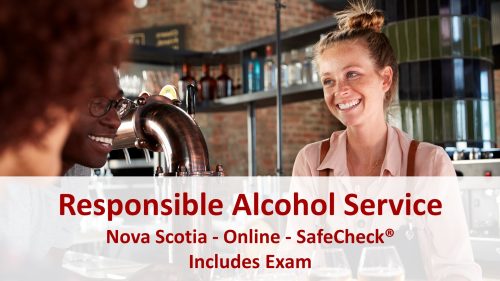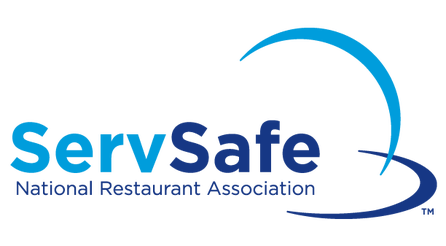safeserve Training: The Key to Obtaining Food Safety Credentials
safeserve Training: The Key to Obtaining Food Safety Credentials
Blog Article
Master Liable Alcohol Service With Comprehensive Qualification Programs
The proficiency of responsible alcohol solution is not just a governing need; it is a fundamental element that enhances the credibility and operational stability of establishments within the friendliness industry. What challenges lie in advance for those that look for to boost their solution criteria?

Importance of Liable Alcohol Service
Liable alcohol service is important to advertising public health and safety and security in facilities that offer alcohols. It incorporates an array of practices made to avoid the overconsumption of alcohol, reduce the risk of alcohol-related harm, and make certain a risk-free setting for patrons and team alike. By promoting responsible solution standards, establishments can minimize potential occurrences of drunkenness, which may result in crashes, physical violence, or other negative results.
Moreover, accountable alcohol solution improves the general client experience. Furthermore, establishments that adhere to accountable solution practices often experience lower insurance premiums and decreased legal obligations.
In addition, implementing responsible alcohol service methods aligns with broader public health efforts intended at decreasing chemical abuse and promoting neighborhood health and wellness. This proactive method not only shields specific customers but also adds to a much healthier society. Ultimately, liable alcohol solution is not merely a lawful commitment; it represents an ethical dedication to the well-being of consumers and the neighborhood at large.
Trick Parts of Certification Programs
Accreditation programs for liable alcohol service commonly include numerous key elements designed to furnish team with the required abilities and knowledge to serve alcohol safely. These programs typically consist of thorough training on local and state alcohol laws, making certain that participants recognize their legal commitments and the repercussions of stopping working to conform.
One more essential component is the identification of signs of intoxication - servsafe food handlers card. Personnel are trained to identify behavioral cues indicating when a patron may be over-served, enabling them to step in properly
Furthermore, efficient interaction strategies are highlighted, instructing personnel how to involve with customers in a manner that promotes accountable drinking. This includes training in dispute resolution methods, allowing staff to deal with tight spots calmly and professionally.
Moreover, programs frequently include sensible circumstances and role-playing workouts, supplying participants with real-life examples to practice their abilities. Ongoing education and learning and sources are vital for maintaining knowledge and abilities over time, as policies and best techniques progress. Together, these elements produce a comprehensive structure that equips staff to cultivate a much safer drinking atmosphere while reducing responsibility for facilities.
Advantages for Personnel and Facilities
Personnel and establishments alike enjoy significant take advantage of taking part in liable alcohol service qualification programs. For staff, these programs enhance expertise and skills associated with alcohol solution, equipping them to recognize signs of drunkenness and execute reliable intervention strategies. This training not only fosters a feeling of confidence among staff members however additionally promotes a culture of safety and security and responsibility in the work environment.
For facilities, investing in qualification programs can lead to minimized responsibility and fewer occurrences connected to over-serving. By making sure that team are trained click this site in responsible service methods, facilities can mitigate dangers linked with alcohol-related cases, thus securing their reputation and monetary stability. Moreover, several territories offer incentives, such as lower insurance policy costs, for licensed establishments.
Furthermore, carrying out qualified techniques can boost consumer contentment and loyalty. Patrons are more probable to return to places that prioritize their security and health. Inevitably, a dedication to accountable alcohol solution not just cultivates a positive environment but also enhances the total functional effectiveness of establishments, making it a smart investment for long-term success in the hospitality industry.
Typical Challenges in Alcohol Service
Ensuring effective alcohol solution is not without its difficulties, even in establishments devoted to accountable methods. One significant challenge is the demand for personnel to precisely assess clients' alcohol usage levels. servsafe food handlers card. This requires an eager understanding of how various variables, such as food consumption, tolerance, and specific distinctions, affect intoxication
In addition, the stress to optimize sales can contravene liable service methods. Employees might face difficulties in rejecting service to inebriated people, particularly in social settings where peer pressure and assumptions are common.
Another difficulty is staying updated with neighborhood laws and laws relating to alcohol service. Compliance is crucial, yet constant changes in regulation can create complication and might result in unintentional offenses.
Training programs might not constantly cover the nuances of real-world circumstances, leaving staff ill-equipped to take care of complex circumstances. Irregular communication in between administration and staff members concerning assumptions for liable service can even more intensify these problems.
To browse these challenges successfully, establishments should promote an environment of assistance, highlighting the relevance of accountable solution while giving the required devices and training for staff to be successful.
Steps to Acquire Qualification
To Extra resources get Responsible Alcohol Service Accreditation, applicants commonly start by looking into the specific requirements mandated by their local regulative authorities. These demands may vary substantially relying on the area, so it is crucial to acquaint oneself with the pertinent legislations and laws.

After choosing a program, applicants need to finish the requisite training, which typically covers subjects such as identifying intoxication, recognizing legal obligations, and implementing techniques for liable solution. Participants must proactively engage with the material, as this knowledge is essential for effective alcohol service.

Adhering to training, candidates generally take an examination to evaluate their understanding of the material. Effective conclusion of this evaluation causes accreditation.
Conclusion
In verdict, mastering responsible alcohol service with detailed qualification programs is crucial for promoting safety and enhancing customer experiences within the hospitality industry. By equipping personnel with the required understanding and skills, establishments not only mitigate risks connected with overconsumption and legal responsibilities yet additionally grow a culture of obligation. This commitment to responsible solution inevitably brings about raised consumer commitment and operational success, reinforcing the importance of continuous training and adherence to alcohol service investigate this site standards.
Report this page